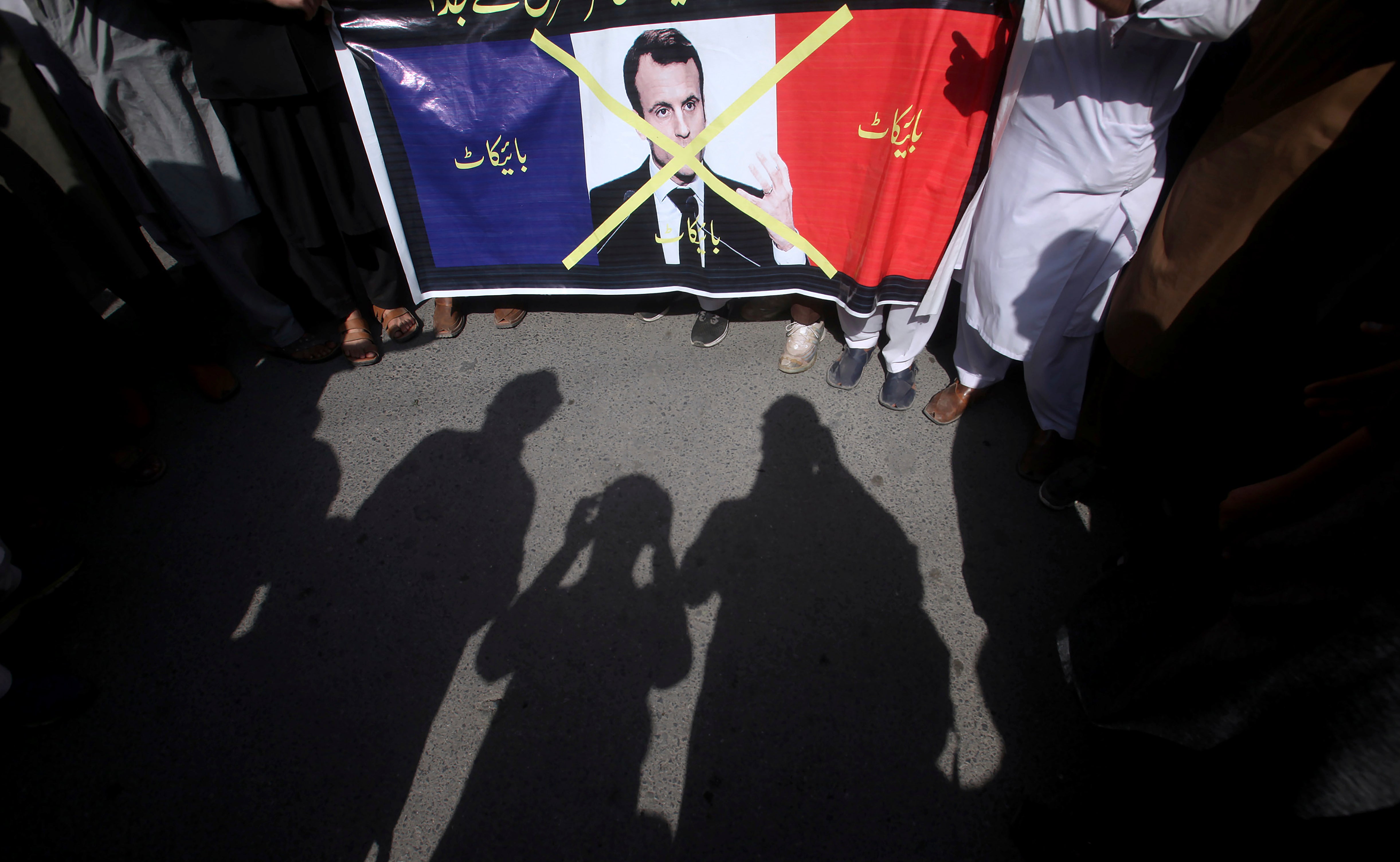France tightens security amid fallout from teacher beheading
France is increasing security at religious sites as the interior minister said the country faces a “very high” risk of terrorist threats

Your support helps us to tell the story
From reproductive rights to climate change to Big Tech, The Independent is on the ground when the story is developing. Whether it's investigating the financials of Elon Musk's pro-Trump PAC or producing our latest documentary, 'The A Word', which shines a light on the American women fighting for reproductive rights, we know how important it is to parse out the facts from the messaging.
At such a critical moment in US history, we need reporters on the ground. Your donation allows us to keep sending journalists to speak to both sides of the story.
The Independent is trusted by Americans across the entire political spectrum. And unlike many other quality news outlets, we choose not to lock Americans out of our reporting and analysis with paywalls. We believe quality journalism should be available to everyone, paid for by those who can afford it.
Your support makes all the difference.France is increasing security at religious sites as the interior minister said Tuesday that the country faces a “very high” risk of terrorist threats, amid growing geopolitical tensions following the beheading of a teacher who showed his class caricatures of the Prophet Muhammad
French diplomats are trying to quell anger in Turkey and Arab nations amid anti-France protests and calls for boycotts of French goods in response to President Emmanuel Macron’s firm stance against Islamism in the wake of the Oct. 16 beheading. European allies have supported Macron, while Muslim-majority countries are angered by his defense of prophet cartoons they consider sacrilegious.
France’s national police have called for increased security at religious sites around the All Saint’s holiday this coming weekend, particularly noting online threats from extremists against Christians and moderate French Muslims.
Interior Minister Gerald Darmanin said on France-Inter radio that the terrorist threat remains “very high, because we have a lot of enemies from within and outside the country.”
He reiterated plans to try to disband Muslim groups seen as peddling dangerous radical views or with too much foreign financing. He accused Turkey and Pakistan in particular of “meddling in France's internal business."
“There is a battle against an Islamist ideology. We must not back down,” he said. But he insisted that “the Muslim faith has all its place in the republic.”
Some members of France’s largely moderate Muslim community are calling for calm, and defending the freedom of expression that the beheaded teacher was seeking to demonstrate.
The prophet cartoons deeply upset many Muslims around the world. Turkish President Recep Tayyip Erdogan has led the charge against France, questioning Macron’s mental state, and France recalled its ambassador to Turkey for consultations, a first in French-Turkish diplomatic relations.
Tensions between the two countries have mounted in recent months over Turkish actions in Syria, Libya and the Caucasus Mountains region of Nagorno-Karabakh. But this new spat has quickly spread to other countries in Europe and the Muslim world.
Anti-France protests have been held from Bangladesh to the Gaza Strip, Kuwaiti stores pulled French yogurt and bottles of sparkling water from their shelves, Qatar University canceled a French culture week, and Pakistan’s parliament passed a resolution condemning the publication of cartoons of the prophet.
EU officials warn that Turkey’s stance could further damage its relations with key trading partners and its long-stalled efforts to join the EU.
“A boycott will only move Turkey even further away from the EU,” European Commission spokesman Balazs Ujvaris said Tuesday, insisting that Turkey needs to respect the terms of its trade deal on merchandise and goods with the EU.
___
Samuel Petrequin in Brussels and Suzan Fraser in Ankara contributed.